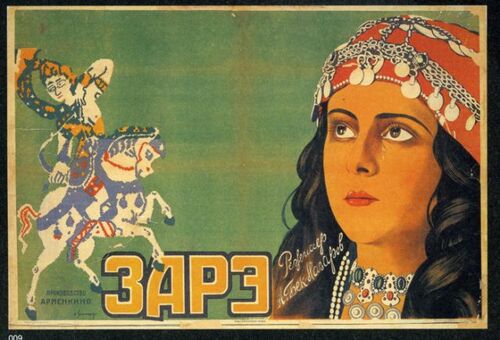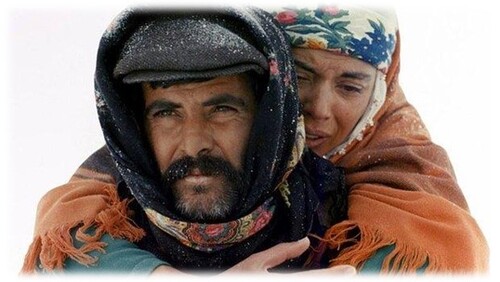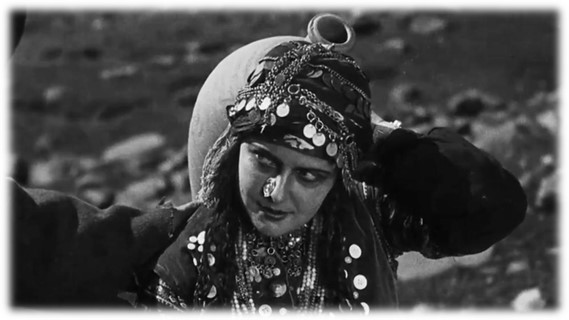Read the first part of this article here
To go into the discussion and role of women in Kurdish society and cinema in more detail, in the first part of this article, we briefly discussed the history of feminism and then returned to the trends and stages in which women have passed the social and media borders. We came to the role of women in Kurdish society, activities, and movements. Then we talked about feminist cinema, its origin, and its results. In the following article, we will discuss the role of women in Kurdish cinema, with some examples and works.
The role of women in Kurdish cinema
In my opinion, the women's issue and the Kurdish issue are two special issues that have something in common. Both are historical issues that have not escaped the dark cloud of oppression for hundreds of years. Neither has achieved their rights, but again neither has given up on achieving them. Perhaps that is why women and men share in the Kurdish political struggle to some extent. Kurdish cinema also reflects this issue and has made them two inseparable issues.
What makes a film a feminist film is how it presents the issue of women. In other words, it must be presented as a problem that needs to be solved, not an ordinary event! If we want to talk about the role of women in Kurdish films, we see that women have not played a marginal role, but even a major role.
We as Kurds do not yet have a cinema that all the framework and principles of a national cinema require due to the situation in which we live and the lack of an independent power. There are still films going to Kurdish cinema whose language, actors, and directors are not Kurdish! Therefore, I will start with the films that have been included in the ranks of Kurdish films because of their story, and then I will discuss the films that include principles such as director, language, story, and actor, all together to be included in a national cinema.

Zare, Hamo Baknazaryan, 1926
Zare, the first film about Kurds, was directed by Hamo Baknazaryan in 1926. The film tells the story of the Kurdish nomadic living at the foothills of the snowy mountains of Agri and the rocky slopes of Yerevan's Alages Mountains. Zare, the name of the film, is the name of a daughter of one of the Kurdish families. Her father is Msto and her mother is Nano. The film starts with Nano's prayers; she prays that their cow will give birth to a female calf! In addition to politics, nobility, and the lives of the nomads, the film also targets women's issues; Teimur Bag is getting married for the second time (his first wife is Latifah). Zare is kidnapped by Teimur Bag and forced to become his second wife, but because Zare does not allow this to happen, she is unjustly accused by Teimur Bag. As I noted earlier, these matters are only noteworthy if they were mentioned as a problem, rather than a normal incident; this is well evident in Zare. That is the oppression of the noble-subject system against the people, especially women, is shown as a problem. In a noble-subject system, the noble has the power to do everything. Neither Zare's father dares to say, “My daughter is still young and is not ready to marry.” Neither Teimur Bag's wife nor Zare has the right to disagree. But neither Latifah Khan nor Zare would agree to the noble's two hundred sheep.

Kari, Yilmaz Guney, 1987
"Kari" (1987) and "Rega" (1982) are two of Yilmaz Guney's most important films that are considered Kurdish films because of their story and director. What makes these two films special in this topic compared to other films is the issue of women, in which they are the most prominent and central theme. In Kari, the role of Berivan (Malika Demiragh) completely connects the Kurdish political issue and the issue of women. She is silent, her silence is a language that is forbidden, and she is an oppressed woman who does not know in what language to shout her pain, and who is afraid to demand her rights. She has not been able to fulfill her duty according to the definition given to her by the patriarchal system. Berivan could not get pregnant; she could not save the peace that was linked to her pregnancy! But the issue is this; does Berivan deserve this behavior?

Rega, Yilmaz Guney, 1982
In Rega, Sayid Ali (Tareq Akan) is a prisoner who receives leave from prison to visit his family; but good news doesn’t await him. Zine (Sharifa Sazar) has cheated on him, and committed adultery! Sayid Ali must cleanse an honor caused by his wife Zine. Zine is chained by her family and awaits a sentence by her family. Zine is sick and apologizes to Sayid Ali, asking him not to leave her in the snow and punish her in this way. But she will not survive alive in such a system!
Meanwhile, Amina (Maral Orhunsay), the wife of Mohammed Saleh (Khaled Ergun), falls victim to hostility for which she had no fault. Mewlud (Hikmet Celik) advises his future wife that at home she must follow his words. She should not talk or laugh with any other man except her brothers. But he is allowed to go to whorehouse and do whatever he likes!
To be continued...
In the next part, we will focus on films whose directors, actors, stories, and language are entirely Kurdish and see what the role of women is in them.









